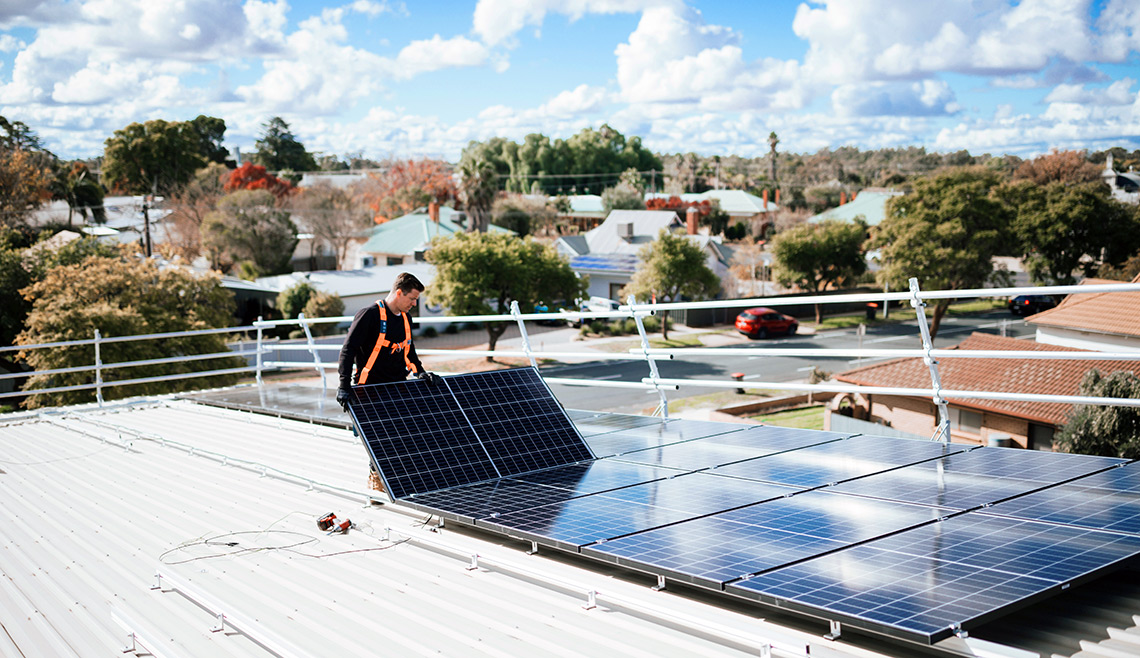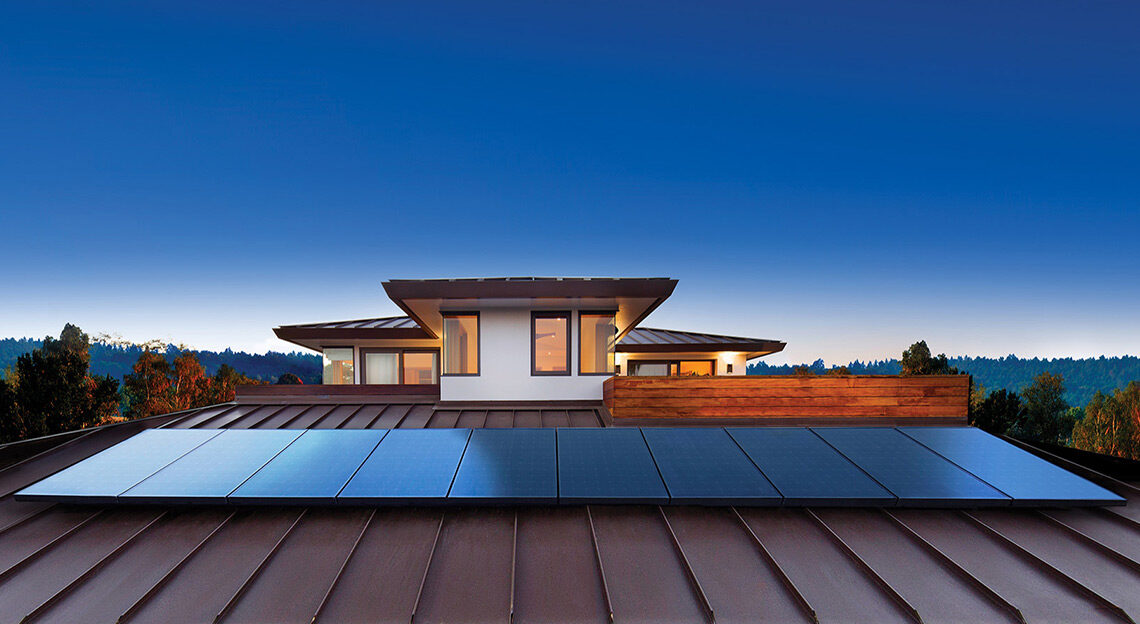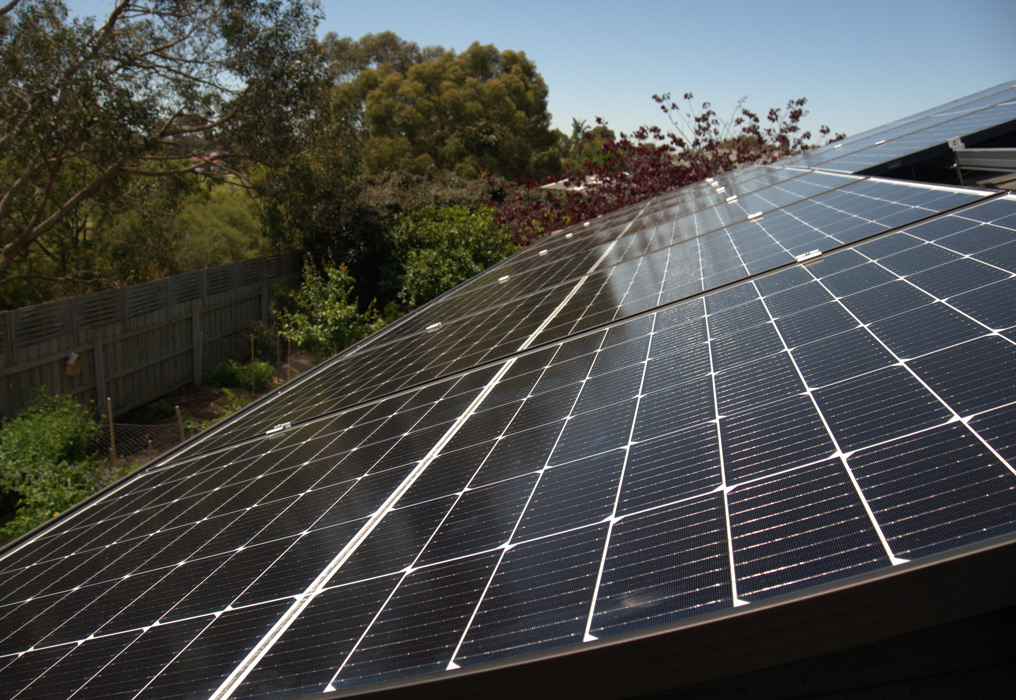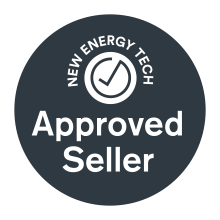The term ‘tier 1 solar panels’ is used a lot by solar salespeople. It sounds good, but what does it mean? And if you buy a tier 1 solar panel, are you getting good quality?
This post explains what the Tier 1 solar panel ranking is. It also covers:
- Why the Tier 1 rating is just a starting point for evaluating panel quality
- Ways to tell if a solar panel is any good
What is Tier 1 for solar panels?
When people talk about Tier 1 solar panels, they are almost always referring to the ranking system created by Bloomberg New Energy Finance Corporation.
Bloomberg – at the request of its clients – created a method for rating solar panel manufacturers based on their ‘bank-ability’. In other words, by their financial strength.
The purpose of this ranking system is to make it easier to shortlist solar panel manufacturers suitable for large solar farm projects in terms of their profitability and balance sheet.
Bloomberg themselves say that their Tier 1 solar panels ranking is not a measure of solar panel quality. They say, “We strongly recommend that module [i.e. solar panel] purchasers and banks do not use this list as a measure of quality.”
Put in another way, the Tier 1 solar panels ranking is about the financial viability and strength of solar panel manufacturers – nothing more, nothing less.
How does Bloomberg define its Tier 1 ranking system?
Once again, Bloomberg is very clear on this point. They state:
- Tier 1 solar manufacturers are “those which have provided own-brand, own-manufacture products to at least six different projects [at least 1.5MW in size] which have been financed non-recourse by six different commercial banks in the last two years.”
They also say that:
- “We only tier manufacturers which actually own their own production facilities and sell under their own brands. Companies that outsource production under brand names are not tiered.”
- “Manufacturers which have filed for bankruptcy or a form of insolvency protection … are removed from the tier 1 list until further notice.”
From this, it’s reasonable to assume that any solar panel manufacturer who makes it onto the Bloomberg Tier 1 will have these characteristics:
- They make their own solar panels
- They don’t outsource production of components
- They market their panels under their own brand
- They are financially solvent
- Their solar panels have been selected for megawatt-scale solar farms
- Commercial banks have approved the solar panels manufacturer as a supplier
What this also tells us is that the solar panels manufacturer is a major player in the industry, they’ve been checked out by major commercial banks and found to be solid – plus they’re serious about the quality control of their manufacturing processes, keeping it all in-house.
That’s a great starting point when it comes to evaluating solar panels. After all, a solar panels system is supposed to work effectively for at least 25 years.
Solar panels come with a minimum 10-year product warranty and 25-year performance warranty. There’s no point in buying panels from a solar company that’s not likely to be around for the mid-to-long term to honour any warranty claim.
That’s why we reckon purchasing a solar panel that’s been made by a Tier 1 solar panel manufacturer is important.
But is that enough? Are all solar panels made by Tier 1 manufacturers great quality and worth putting on your roof?
The answer is no, not necessarily. There’s a bit more to it!
Before we move on – here’s a tip: If a solar salesperson claims that a solar panel is on the Tier 1 list, ask to see a copy of latest Bloomberg Tier 1 report. It’s published quarterly and only available on subscription. Don’t rely on any internet version. It may not be the real thing.

Some ways to tell a good panel
Solar panel datasheets are not the easiest read. They’re full of tech terms for solar tech-heads, not the typical layperson. Sure, you can work it out if you invest some time. But a better way is to know the ‘must check’ criteria which will tell you if solar panel brand is any good.
Here are the top criteria to check with it comes to getting quality solar panels
1. Solar panel efficiency
This is the rate at which a solar panel transfers sunlight, via photovoltaics, into electricity. As a theoretical example, if a solar panel has an efficiency rating of 100% it would mean that all the sunlight reaching the panel would convert to solar electricity.
The reality is the solar industry is a long way off creating panels with 100% efficiency. Currently, 19 per cent efficiency is the minimum you should expect. Some panels are as high as 21-22% but you will pay a bit more. This may be worth it if you’re looking to maximise the solar generation from limited roof space, or want to future proof your home by putting on large system.
2. Do they have an Australia support office?
Given that solar panels are a long-term investment, you want to be sure there’s an Australian office you can call if you have a warranty claim. You want to know that it’s manned by tech support staff and they have field-based team as well.
3. Do they have any built-in shade-resistant technology?
Whilst solar inverters – such as microinverters – are the main ways to minimise the impact of partial shading on your roof, solar panels can help too. Half-cut solar panels have clever shade resistant technology built into the panel. This means that if one half of the panel is shaded, it won’t affect the power output of the rest of the panel. Talk to us if you’re interested in this type of panel technology for your home or business.
4. How long’s the product warranty?
The product warranty is the most important warranty for solar panels – more important than the performance warranty. That’s because it covers defective materials or workmanship in the manufacture of the panel.
The industry minimum for a solar panels product warranty is 10 years. The catch is that many are parts-only for the last five years; you have to pay for the labour.
A 10-year product warranty including parts and labour is the absolute minimum you should be looking at. Quality solar panels come with longer product warranties – 12 or even 15 years. In our opinion, this longer warranty period is well worth having.
5. What’s the degradation rate of the solar panel over 25 years?
Look at the small print in the solar panel performance warranty and you’ll see a measure of the degradation of the panel over a 25-year period.
The industry standard is that panels will perform at 75% efficiency at the end of the 25th year, compared to their day 1 efficiency.
Whilst this is acceptable, in our opinion it is better to choose a higher quality panel that’s guaranteed to be at least 80% efficient after 25 years.
6. Manufacturing country of origin
Some people tell us they don’t want to buy panels made in China. But did you know that over 80% of all solar panels worldwide are made in China and that most of the remaining panel production is in Southeast Asia? And, did you know the best solar panel in the world is also made in China?
Of course, there are many Chinese solar panel brands you wouldn’t want on your roof. Their manufacturing processes may be questionable and the quality unreliable.
But when you think about your iPad or iPhone, it’s most probably made in China. And there’s nothing wrong with the quality of those products!
The reality is that most solar panels are made in China. It’s just a question of identifying the good from the bad – and that’s where we can help!
7. Cost
The cost of solar panels has fallen around 80% in the last 10 years. The best solar panels are now a lot more affordable than they used to be. Higher wattage panels, at 370 watt or even 440 watt per panel, are available at a good price point. When you consider the increased solar production you get with a higher quality panel over the 25-year lifetime, paying a bit extra at the outset can make financial sense. We stock quality panels at all price points so get in touch for a quote.
8. Aesthetics
You may have noticed that new solar panels are black, not blue like in the past. When you look closely, you’ll even see some that have an all-black appearance without any silver lines (known as bus bars). Depending on your property, the all-black look may be what you’re looking for. If so, talk to us as we stock quality pure-black panels. However, bear in mind all-black panels are generally more expensive. In our opinion, black solar panels with silver lines look great and will blend in well.
Get a quote for a Tier 1 solar panel system
At Specialized Solar and Electrical we only install tier 1 solar panels. What’s more, we’ve selected the best tier 1 solar panels based on the above criteria. When you get solar panels installed by us on your roof, you can be sure you’re getting quality. Get in touch for a free consultation and a quote.













